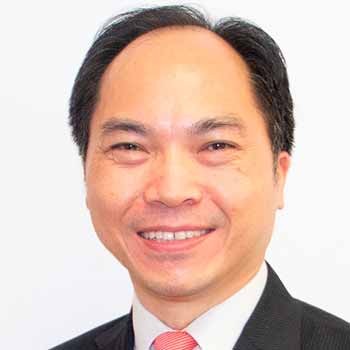I studied accounting at university in Hong Kong. After graduation, I started working at one of the international Big Four accounting firms, providing audit and consultation services to both listed and unlisted clients in Hong Kong SAR and mainland China for more than nine years.
Later, I moved to Sydney and worked at an accounting firm for three years. In 2002, I returned to Hong Kong and joined CCIF CPA, which later merged with another firm to become Crowe (HK) CPA.

Accountants now need to learn new technologies and develop more essential skills, such as analytical and managerial, to add value for clients
My main duties are to provide technical support and consultation to different service departments of the firm, as well as to clients on issues relating to audit, tax and internal control. I am also responsible for organising and delivering training to staff and clients, and for monitoring audit compliance and quality control of our firm.
In addition, I have served as a tutor and workshop facilitator in accounting courses and programmes offered by different universities and professional institutions for more than 15 years.
These duties require both hard and soft skills. Not only is in-depth knowledge of traditional financial reporting and auditing standards required, but also sound communication skills and a constant awareness of regulatory requirements. Those skills let me assist staff and students with developing their technical competence.
However, we are now in the midst of intense global change. New industries and technologies have emerged, and regulations and reporting standards are evolving. The accounting profession is facing more challenges.
Accountants are expected to do more than crunch numbers all day. They also have to perform more advanced managerial tasks, get more involved in the business decision-making process and help organisations to deal with emerging trends. As a result, accountants now need to learn new technologies and develop more essential skills, such as analytical and managerial, to resolve complex issues and add value for clients.
More challenges remain ahead, as accounting regulations are changing more rapidly than ever. To tackle these changes, we need to analyse issues thoroughly and assist management in drawing up new organisational policies and procedures, followed by training and coaching to update staff. Faster response and better generic skills are required – including analytical, communication and time management – to implement all these effectively.
As principal of the technical department, I strive to keep my knowledge up to date. At the same time, I also hone my core enabling skills, so that I can embrace the challenges at work.
I would suggest that those considering a career as an accountant or auditor should have a clear career plan and targets. They also need to complete the professional examinations as early as possible, probably within the first five years after graduation. This can help them to accomplish their personal and career goals afterwards. They should also be prepared to adapt to new challenges in the industry and keep up with regulatory changes.



